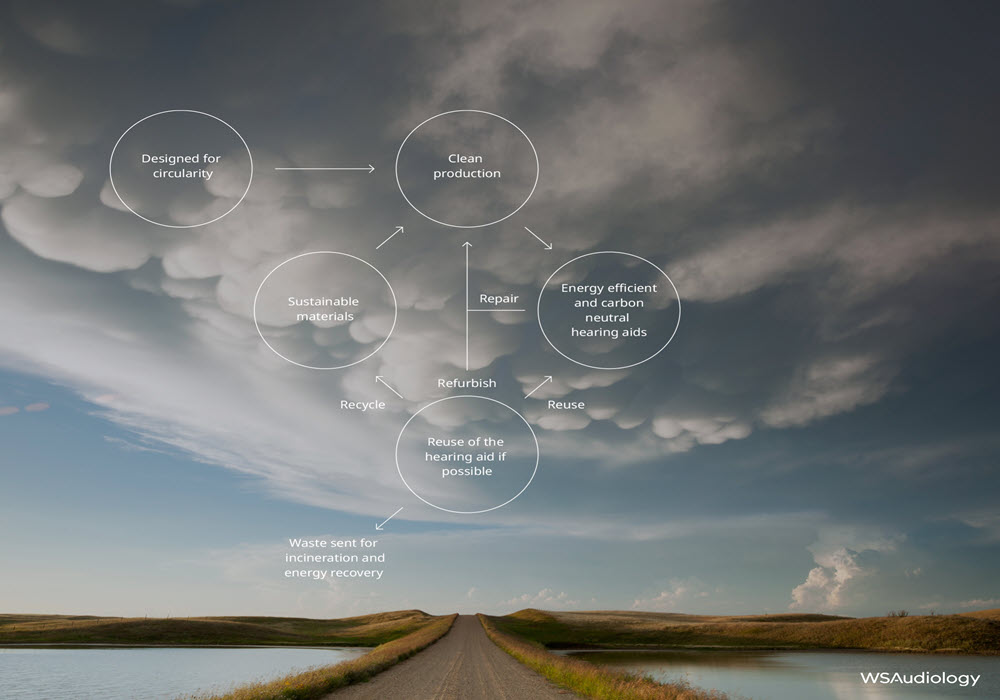WS Audiology Accelerates its Circular Economy Transition with Ellen McArthur Foundation Network Membership and Embarks on Research with Singapore University of Technology and Design
3 Jul 2023


WSA joins the Ellen MacArthur Foundation’s Network as a Member as part of the company’s strategic goal to ‘Protect the Planet’ and its efforts to support the transition towards a low-carbon and circular business model.
Launched in 2010, the Ellen MacArthur Foundation is the world’s leading circular economy network, committed to the creation of a circular economy that tackles global challenges, such as climate change, biodiversity loss, waste, and pollution.
As part of the Network, WSA will join industry-leading corporations, emerging innovators, and governments, to share knowledge and have open discussions on how to build and advance the circular economy. Chaojun Li, Head of Sustainability, WSA, said:
“At WSA, one of our strategic goals is to evolve towards a circular business model. We strive to incorporate circularity in R&D, Operations, and our value chain. The principles of circular economy are simple, but implementation is complicated. We are joining the Ellen MacArthur Foundation alongside many of the world’s leading organizations, to ensure we have access to research, expertise, and methodologies across industries. The sustainability challenges we face in the world can only be solved through these collaborative efforts, across industries, where we can collectively tackle challenges and pave the way for a more sustainable future for all.”
Research with Singapore University of Technology and Design (SUTD)
Across the hearing aid industry, the challenges when it comes to circularity are two-fold: How to enable circularity through product design, and when products and accessories are returned after a trial period.
These two main questions will be addressed in a research study by Associate Professor Lynette Cheah from the Singapore University of Technology and Design, together with Ph.D. student and WSA Circular Economy Specialist, Shaleen Shahrin.
Shaleen’s interest in circular economy and sustainability stems from her long-standing commitment to reducing environmental impact. Since her days as a geography student, she has made great efforts to lead a more sustainable lifestyle and understands the importance of individual choices and consumption patterns in shaping the planet’s well-being.
“I am deeply motivated by the potential of a circular economy and how it creates an impact within organizations. Through my research with WSA on the operational procedures and supply chain intricacies of hearing aids and their accessories, I hope to contribute to a more sustainable future,” Shaleen said.